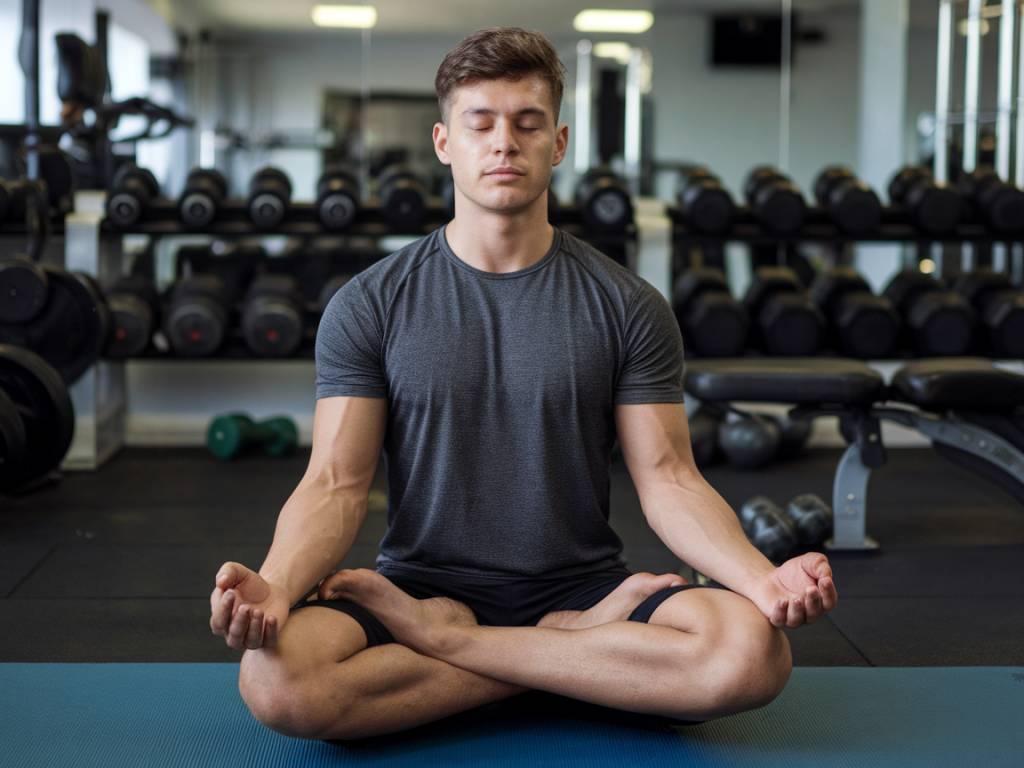How meditation can improve sports performance and focus

How meditation can improve sports performance and focus
Why Meditation is a Game-Changer for Athletes
Meditation has transitioned from being a niche practice for monks on mountain tops to becoming a widely recognized technique embraced by athletes worldwide. Whether you’re a runner looking to beat your personal record or a basketball player wanting to stay sharp during a game, meditation offers tools to improve your physical and mental performance. You might be wondering: how can sitting still and focusing on your breath possibly help with an active pursuit like sports? Let’s explore.
How Meditation Enhances Sports Performance
At its core, meditation helps to bridge the gap between your mind and body. In sports, this connection is crucial. Here’s how meditation levels up your performance:
- Improved Focus: Meditation trains your mind to stay in the present moment. This skill comes in handy when you need to concentrate on the next play or stay mindful of your form.
- Better Stress Management: High-pressure situations, like a championship game or a big race, can make even the best athletes crumble. Regular meditation helps you regulate your stress responses, keeping you composed when it matters most.
- Boosted Recovery: Meditation activates the parasympathetic nervous system, aiding in muscle recovery and reducing inflammation. This means faster recovery times and fewer injuries.
- Enhanced Decision Making: Mindful practices strengthen the prefrontal cortex, the part of your brain responsible for decision-making. In sports, where split-second choices can determine victory, this is a serious advantage.
- Increased Endurance: Meditation helps control your breathing, making movements more efficient and reducing fatigue during long periods of exertion.
The Science Behind Meditation and Athletic Focus
Still skeptical? Let’s dive into the science. Studies have shown that regular meditation boosts gray matter in parts of the brain associated with focus, memory, and emotional regulation. Athletes like LeBron James and Novak Djokovic have publicly credited meditation for their enhanced mental clarity and performance under pressure.
Meditation promotes mindfulness, the ability to stay fully present in the moment. For athletes, this translates to sharper focus during training and competition. For example, a tennis player practicing mindfulness can reduce distractions and stay locked onto every move of their opponent, increasing their chances of success.
How to Incorporate Meditation into Your Fitness Routine
Meditation doesn’t have to mean hours of sitting cross-legged in silence. In fact, just a few minutes a day of focused practice can yield significant benefits. Here’s how to get started:
- Start Small: Begin with 5 minutes a day. Set a timer, find a comfortable position, and focus on your breath.
- Use Guided Meditations: Apps like Headspace or Calm offer beginner-friendly meditations tailored for athletes. Having a guide can make the process less intimidating.
- Integrate Meditation into Warm-Ups: Before a workout or game, spend a few minutes visualizing yourself performing at your peak. This combination of mental imagery and mindfulness can boost performance.
- Practice Active Meditation: For those who struggle with traditional meditation, try incorporating mindfulness into your sport. Pay close attention to the rhythm of your running stride, the sound of your breath, or the feeling of the racket in your hand.
A Real-Life Example: Meditation in Competitive Sports
To see the power of meditation in action, look no further than the case of Phil Jackson, the legendary NBA coach nicknamed the « Zen Master. » Jackson implemented meditation and mindfulness practices with his players, including Michael Jordan and Kobe Bryant. The results? Multiple championship wins and a legacy of mental toughness and focus.
Or consider Andy Puddicombe, a former monk and the co-founder of Headspace. He has collaborated with numerous sports teams to integrate meditation into their training regimens, helping athletes improve mental clarity and resilience.
Meditation vs. Visualization: What’s the Difference?
Many athletes already practice visualization, which involves mentally rehearsing a performance or desired outcome. While it’s not the same as meditation, the two techniques complement each other beautifully.
Visualization is goal-oriented—you’re imagining success. Meditation, on the other hand, emphasizes staying present and letting go of outcomes. Training your mind for mindfulness through meditation provides the mental balance needed to enhance visualization practices, creating a holistic mental training approach.
The Ripple Effect of Meditation on Overall Well-Being
Beyond sports, meditation improves sleep, reduces anxiety, and enhances mindfulness in everyday life. These benefits create a ripple effect that indirectly boosts athletic performance. After all, a well-rested, stress-free athlete is a stronger athlete.
Imagine waking up feeling refreshed, tackling training sessions with laser focus, and finishing competition days with a calm mind, all thanks to a meditation habit. That’s the ultimate win-win.
Key Takeaway
Incorporating meditation into your sports routine isn’t just a wellness trend; it’s a proven game-changer. By strengthening the connection between mind and body, reducing stress, and enhancing your focus, meditation has the potential to elevate your athletic performance to new heights. So, why not give it a try? Your mind—and your game—will thank you.






